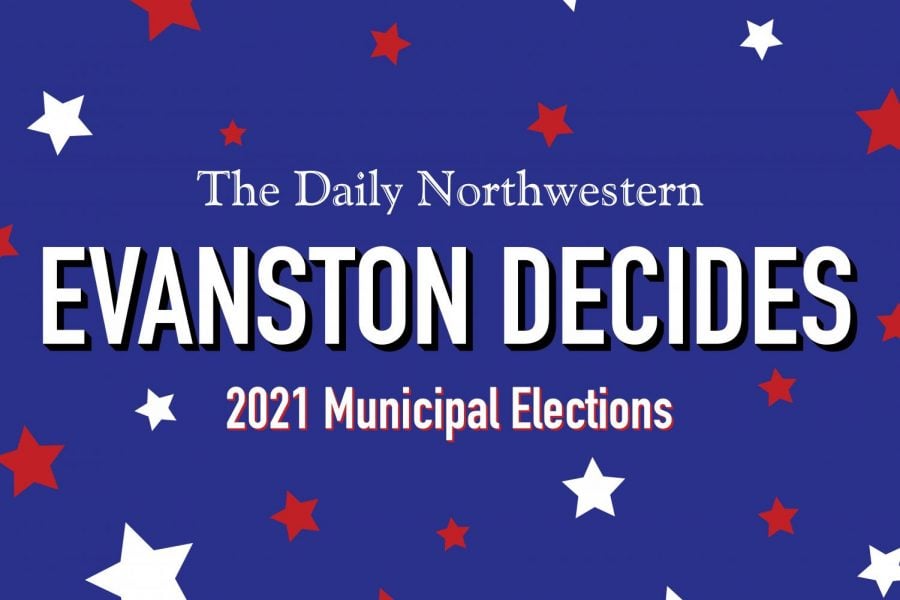City clerk candidates emphasize transparency, accountability in forum
Daily file illustration by Jacob Fulton
The three Evanston mayoral candidates faced off in a virtual debate Tuesday night. Daniel Biss, who has secured endorsements from seven of nine City Council members, defended his record as a state legislator.
February 1, 2021
City clerk candidates discussed building resident trust and improving Freedom of Information Act procedures in a Saturday panel.
The League of Women Voters of Evanston and the Evanston Public Library are partnering this week to co-sponsor a series of candidate forums in advance of February’s consolidated primary election. Josie Yanguas, a member of the League of Women Voters of Chicago, moderated Saturday’s virtual forum.
Stephanie Mendoza, a community outreach specialist and the only candidate on the ballot, said she wants Evanston to be a voting “powerhouse.” Mendoza said she values her skills as “a person who has been in the streets and knocked on every door and encouraged people to get out to vote.”
Cynthia Beebe, a retired federal agent and one of the race’s four write-in candidates, said she would prioritize mobilizing young voters.
“As Evanston city clerk, I realize that’s a local office,” Beebe said. “Nonetheless, as one of many city government employees and state employees working with the state and with the nation, I would like to be very active in doing what I could to fight against voter suppression.”
Mentioning that some communities in Cook County have appointed rather than elected city clerks, Yanguas asked the candidates what the procedure should be in Evanston.
All candidates responded that residents should elect the city clerk.
Mendoza said the city clerk should remain an elected position, because the clerk acts as a liaison between residents and city officials. Voting establishes trust between residents and the city clerk, she said.
Current deputy City Clerk and city clerk candidate Eduardo Gomez said the city clerk shouldn’t be appointed because they shouldn’t have to respond to a higher power. He pointed to the clerk’s role as a Freedom of Information Act officer, and said the clerk must “wield that responsibility in the best interest of the public.”
City clerk candidate Jackson Paller (Weinberg ‘17), a lifelong Evanston resident and second-year law student at Loyola University Chicago, said he would make Evanston Police Department and the Evanston Law Department FOIA requests the responsibility of the city clerk if elected.
“Those are two of the most potentially serious areas,” Paller said, “And we need a publicly accountable person making those decisions.”
City clerk candidate Misty Witenberg, a journalist and public policy activist, said the city clerk needs to be held accountable by the people because they are also responsible for auditing and recording minutes for both open and closed Council meetings.
“Moving to an appointed clerk would be a terrible step in lessening our democracy,” Witenberg said. “An elected clerk is directly accountable to citizens, and there are no intermediaries. They serve the public.”
Email: [email protected]
Twitter: @yimingfuu
Related Stories:
— Aldermen approve resolution appointing additional FOIA officers decreasing city clerk’s power
—Aldermen, residents discuss censure of city clerk at council meeting


